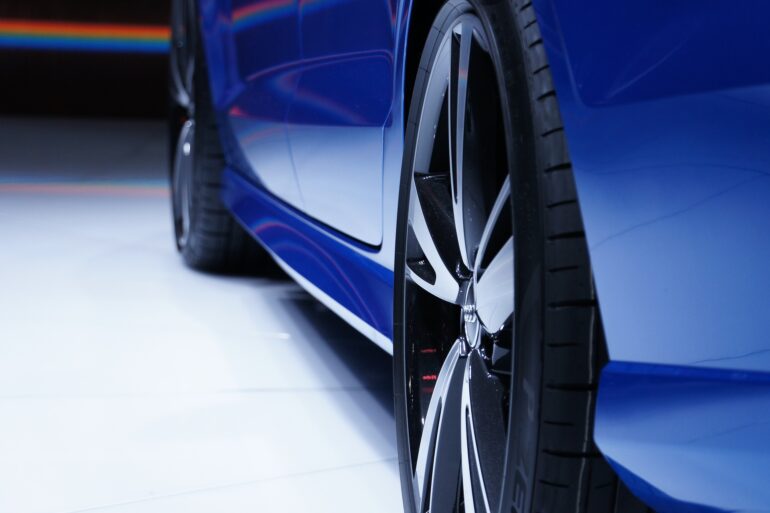TL;DR:
- Established automakers are striving to catch up with Tesla and other tech-focused rivals in the digital transformation of vehicles.
- Software-defined vehicles are becoming a priority, overshadowing traditional horsepower and towing capabilities.
- Transitioning to software-driven cars poses challenges due to the need for higher safety and durability standards.
- Mercedes-Benz initiates a “beta program” to explore AI technology’s potential for more natural driver-vehicle interactions.
- Automakers must adapt IT infrastructure, manufacturing, and dealership processes for faster software integration.
- Bridging the software gap has cost billions and led to challenges, as seen with General Motors’ Chevrolet Blazer EV.
- Volkswagen seeks partnerships with tech companies to expedite software development.
- Chinese EV brands gain traction with advanced in-vehicle displays and technology partnerships.
- Honda’s collaboration with Sony aims to combine engineering and gaming expertise for new EVs.
- Monetizing software functions remains a challenge, with only a quarter of consumers willing to pay extra.
Main AI News:
In the dynamic landscape of the automotive industry, where innovation takes center stage, established automakers are in hot pursuit of matching the remarkable digital feats achieved by new players like Tesla and BYD. As discussions unfolded at the CES technology show in Las Vegas, industry executives and analysts unanimously agreed that artificial intelligence (AI) has emerged as the new driving force for consumers.
Over a decade has passed since Tesla introduced the concept of cars with software that could be upgraded over-the-air, akin to a smartphone. Yet, traditional automakers find themselves playing catch-up in the race to develop what’s now being referred to as “software-defined vehicles.” The industry concedes that this transition has been no cakewalk.
Once upon a time, automakers proudly boasted about horsepower and towing capabilities, but in today’s fast-evolving technological era, it’s the software-driven enhancements that occupy the forefront of consumers’ minds.
However, the shift towards software-dominated vehicles is fraught with challenges. Unlike smartphones, vehicles must adhere to much stricter standards for durability and safety. Moreover, AI systems like ChatGPT and their peers are prone to errors and evolve at a pace far more rapid than the conventional product cycles of automakers.
Digital tech companies often subject their innovations to customer testing before releasing them to the market, a practice not commonly seen in the automotive realm. Mercedes-Benz has now initiated a “beta program” to explore the potential of ChatGPT artificial intelligence in enhancing the interaction between drivers and their vehicle’s infotainment systems.
Magnus Oestberg, Mercedes’ software chief, emphasized that this marks a significant departure from their traditional approach. It entails not only testing but also necessitates a major overhaul of their IT infrastructure, manufacturing processes, and dealership operations to accommodate over-the-air updates and faster software integration into vehicles.
The pursuit of matching the software prowess of tech companies has incurred substantial costs for established automakers, and the journey hasn’t been without its hiccups. General Motors, for instance, recently halted sales of its Chevrolet Blazer EV due to software-related glitches, in stark contrast to Tesla’s seamless over-the-air updates.
Mark Wakefield, leader of the global automotive practice at consulting firm AlixPartners, acknowledged that bridging the gap to rival Tesla’s software architecture capabilities has been a formidable challenge.
Volkswagen, too, experienced setbacks with its Cariad software division but is now exploring partnerships with tech industry leaders to expedite progress. Kai Grunitz, head of technical development for the Volkswagen brand, emphasized the need to adapt to the different work dynamics of software companies.
At CES, Volkswagen unveiled its collaboration with Cerence, a U.S. software developer, to incorporate ChatGPT into their vehicles, signaling a move towards innovation through partnerships. Chinese automakers are also making strides in the electric vehicle market, posing a formidable challenge to legacy automakers in the intense competition for market share.
As the automotive landscape evolves rapidly, consumer preferences are shifting towards vehicles equipped with advanced infotainment features. Chinese EV brands are leading the charge by offering in-vehicle displays with gaming, videoconferencing, and other high-tech functionalities.
To bridge the gap, Japanese automaker Honda Motor joined forces with consumer technology and gaming giant Sony in 2022, forming the Sony Honda Mobility venture. This collaboration aims to leverage Sony’s software and gaming expertise alongside Honda’s engineering and manufacturing prowess to introduce a new line of EVs in 2025.
However, while developing and launching new software is one challenge, convincing consumers to pay for it is another hurdle. While some automakers are experimenting with subscription-based models for software-powered features, only a quarter of consumers express willingness to pay extra for these offerings.
Hyundai’s chief operating officer, Jose Munoz, emphasized the window of opportunity for automakers to monetize new software functions, noting that consumer expectations remain high and the competition fierce. The race to innovate in the automotive industry continues unabated, with AI and robotics poised to play a pivotal role in shaping its future in 2024 and beyond.
Conclusion:
The automotive market is undergoing a profound transformation in 2024, as AI and robotics take center stage. Established automakers are striving to compete with tech-driven newcomers like Tesla, emphasizing software-defined vehicles and over-the-air updates. Partnerships with technology companies and a focus on software innovation are becoming critical for success. As consumer preferences shift towards advanced infotainment features, automakers must navigate the challenges of rapid technological evolution and changing monetization models to remain competitive in this dynamic industry.

